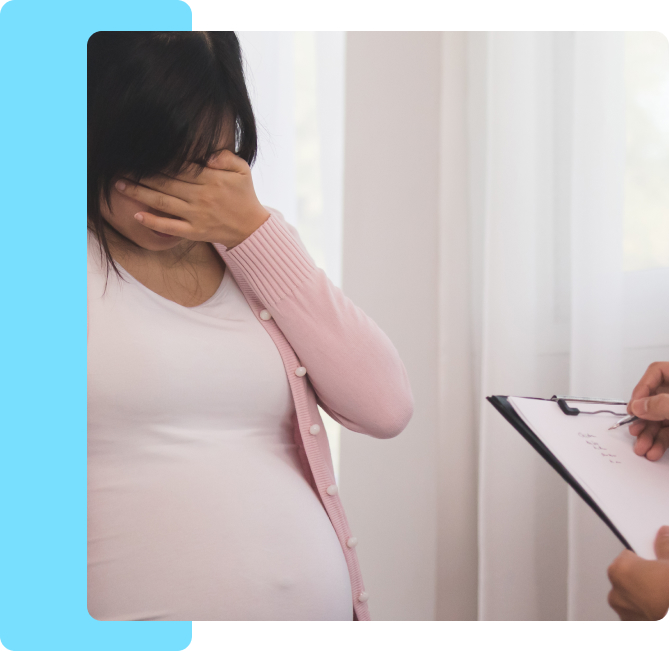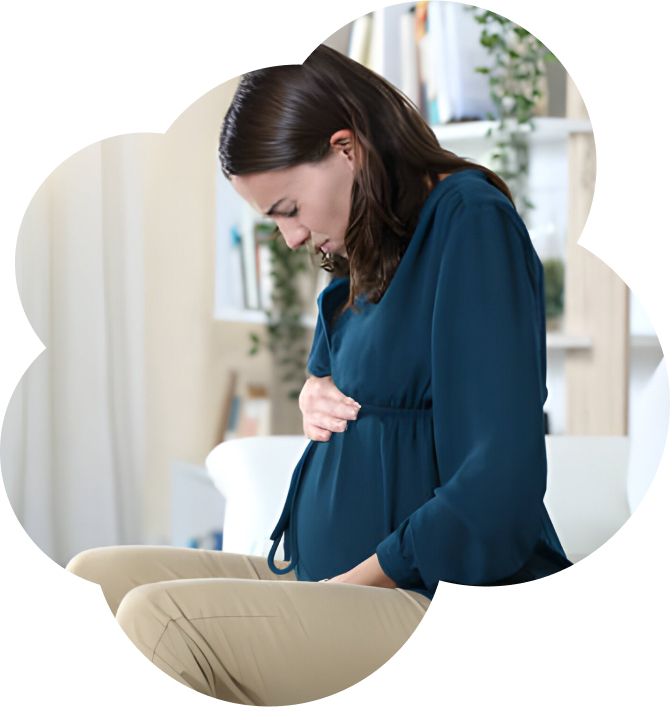
A high-risk pregnancy is one in which there is a higher chance of health issues before, during, or after delivery for the mother, the unborn child, or both. Pre-existing maternal health issues including hypertension, diabetes, renal illness, heart disease, or autoimmune diseases can all be factors in a high-risk pregnancy.
It may also result from pregnancy-related issues such as gestational diabetes, hypertension, or multiple pregnancies (twins or more). Furthermore, the risk might be increased by lifestyle factors like alcohol use, smoking, and advanced maternal age (35 years or older).
If you’re looking for the Best Doctor for Pregnancy in Bangalore or the best high-risk pregnancy doctors in Bangalore, Dr. Kavitha Lakshmi Easwaran at Sai Speciality Center provides expert care and guidance throughout the pregnancy journey.
Most high-risk pregnancies may present with a variety of symptoms that point to possible problems. The following are some typical signs of a high-risk pregnancy:


Pregnancies classified as high-risk have a greater chance of difficulties for the mother, the unborn child, or both. To guarantee the greatest outcomes, these pregnancies need to be closely watched and handled with extra care.
Pre-existing mother health disorders, lifestyle variables, and pregnancy-related difficulties are the main causes of high-risk pregnancies. The risk can be considerably raised by illnesses such autoimmune diseases, diabetes, renal disease, heart disease, and hypertension.
Higher risk is also associated with lifestyle variables such as smoking, alcohol use, obesity, and advanced maternal age (35 or older). Additional factors that increase the risk include multiple pregnancies (twins or more), a history of premature labor, or difficulties from prior pregnancies.
An accurate diagnosis is essential to receiving the right care. A healthcare professional will usually do a comprehensive examination as part of the diagnostic procedure. To confirm the diagnosis, the physician may also suggest further testing.
Blood Tests: Screen for conditions like diabetes, infections, and anemia that could affect pregnancy.
Ultrasound: Regular ultrasounds to monitor amniotic fluid, detect congenital anomalies, and track fetal growth and development.
Non-Stress Test (NST): Monitors the baby's heart rate in response to movements to ensure adequate oxygen supply.
Biophysical Profile (BPP): Combines an ultrasound with an NST to assess the baby's heart rate, muscle tone, movements, breathing, and amniotic fluid levels.


For high-risk pregnancies, the main treatment involves careful monitoring and specialized care. Regular ultrasounds and prenatal checkups are essential for tracking the baby's development and identifying issues early.
Lifestyle changes like quitting smoking, eating a nutritious diet, and exercising regularly are recommended. Medications may be prescribed for conditions such as diabetes or hypertension.
For severe complications, advanced treatments like early delivery, corticosteroids to speed up fetal lung development, or hospital bed rest may be necessary. If you’re seeking the Best Doctor for Pregnancy in Bangalore, Dr. Kavitha Lakshmi Easwaran at Sai Speciality Center provides expert care for high-risk pregnancies, ensuring the health and safety of both mother and baby throughout the journey.
Maintain Good Health: Adopt a healthy lifestyle with balanced nutrition, regular exercise, and avoiding alcohol, tobacco, and harmful drugs to reduce the risk of a high-risk pregnancy.
Manage Pre-existing Conditions: Properly treat chronic health issues like diabetes, hypertension, and autoimmune diseases before and during pregnancy to minimize complications.
Seek Early Prenatal Care: Regular prenatal visits from the beginning of pregnancy enable early detection and management of potential risks, ensuring continuous monitoring of maternal and fetal health.

